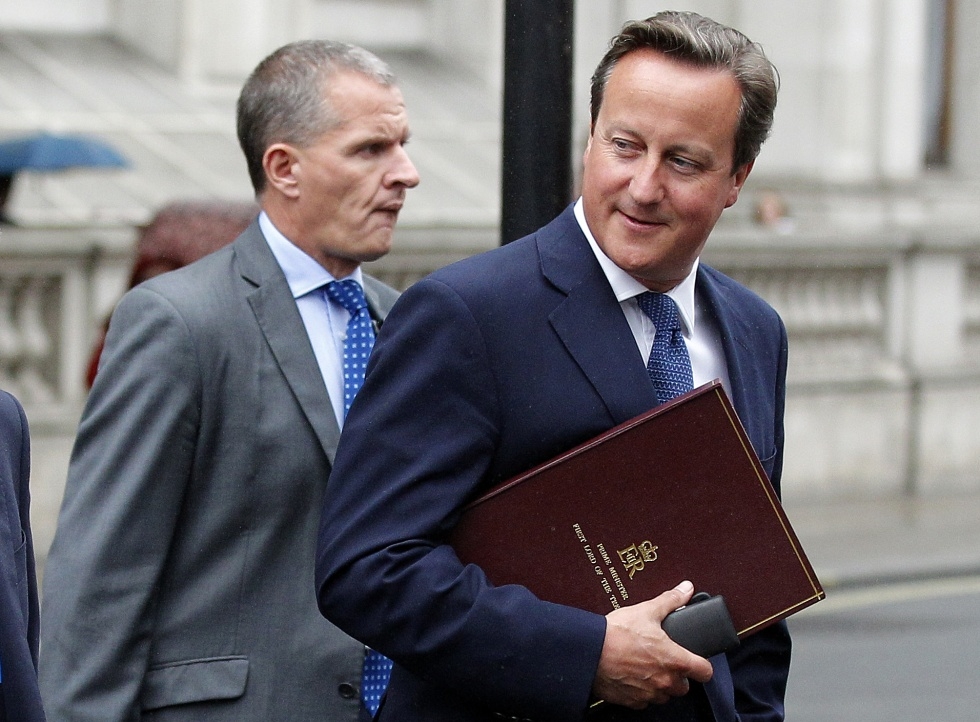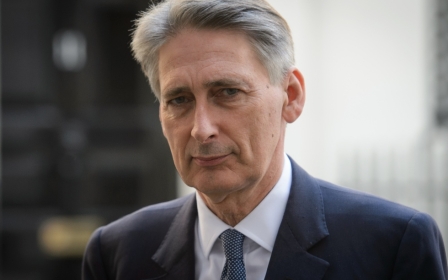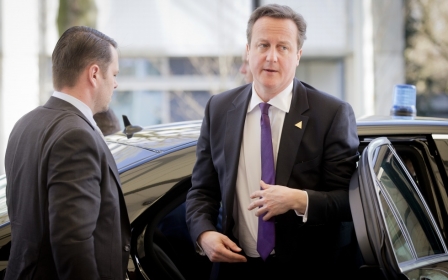British PM outlines plans to ramp up anti-terror measures

Following the elevation of the terror threat level in the UK to "severe" last week, Prime Minister David Cameron on Monday addressed the House of Commons and unveiled a range of measured intended to tackle extremism in the UK.
Britain will make it easier for police to seize passports from would-be jihadist fighters, increase air travel checks and tighten controls on the movement of suspected radicals under the new plans.
The main concern seems to be related to possible plots by radical Islamist fighters returning from Iraq and Syria with battlefield experience. It is estimated that around 500 Britons have traveled to fight in Syria and Iraq, with 700 also traveling from France, 400 from Germany and hundreds of others from countries around Europe and beyond.
Cameron said that specific and targeted legislation was being developed to enable police at the border to seize a passport in order to give them time to investigate the individual suspect.
Conservative Member of Parliament Sir Edward Garnier told BBC Radio 4’s Today program Monday that the expected measure would be nothing new as the Government already had powers to take away the passports from those they suspected of traveling to Syria.
“Whether that’s practical and whether that’s wise is another matter. We do have to consider what can be done, but also what can be done within the law," he said.
"Parliament can pass any law it likes, but the government is bound by at least two UN conventions on statelessness and it seems to me that the Government already has many laws in its locker which it can use.”
He added that the government needed to proceed with caution.
“I think we need to be very careful. We need to do an audit of the laws that we have and the laws that we don’t have, and make sure that we don’t simply during the course of the next weeks or months pass new laws which simply replicate existing laws.”
In April this year, Britain's upper chamber voted to change government plans to give the Home Secretary power to strip terror suspects of their British nationality.
Currently, citizenship can be removed if the individual is a dual national and would not become "stateless."
The coalition government has stripped several citizens of their nationality; in one case Conservative Home Secretary Theresa May stripping an Iraqi-born man in 2007 following his arrest in Iraq by American forces and then transfer to British forces - by whom he was held without charge for three years.
He was later released without charge, the UK. Supreme Court ruling that stripping the man's citizenship was "unlawful." However, Theresa May stripped him of his nationality a second time as she appealed the Supreme Court decision.
The Guardian newspaper reported Monday that other new measures that may be introduced include making it easier for intelligence agencies to access information on airline passengers, legislation to tighten terrorism prevention and investigation measures, and more cooperation with Turkey and Germany to prevent fighters from returning to the UK.
Fighters from the Islamic State (IS), which already have control of parts of Syria, captured the northern Iraq city of Mosul in June and then surged across the north, taking control of a number of predominantly Sunni cities.
In August, the group claimed to have executed American journalist James Foley in a video that apparently showed his beheading by a man who appeared to be speaking in a British accent.
New MEE newsletter: Jerusalem Dispatch
Sign up to get the latest insights and analysis on Israel-Palestine, alongside Turkey Unpacked and other MEE newsletters
Middle East Eye delivers independent and unrivalled coverage and analysis of the Middle East, North Africa and beyond. To learn more about republishing this content and the associated fees, please fill out this form. More about MEE can be found here.




